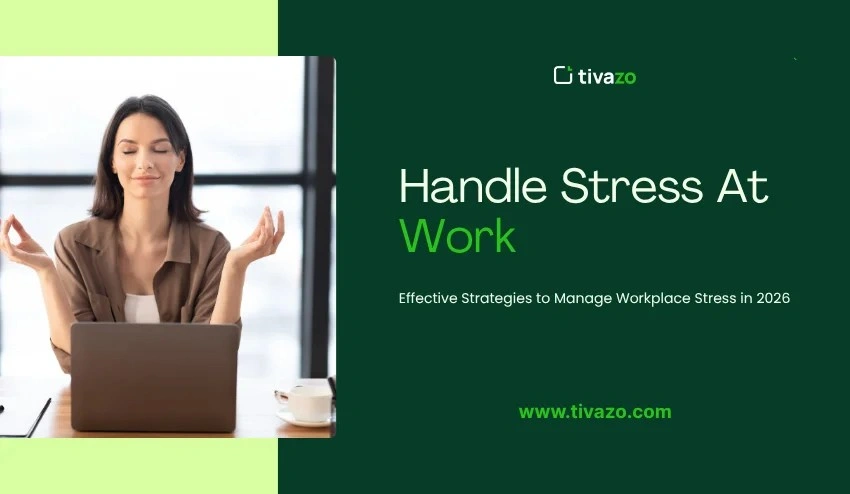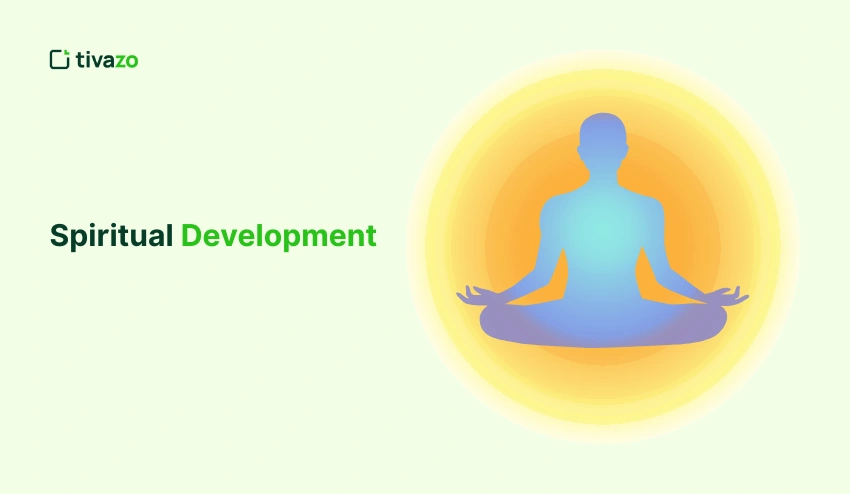We all know the feeling. Exam season comes around, and everything feels overwhelming. When stress builds and deadlines approach, keeping track of everything seems impossible. 80% of college students feel stressed during exams. This reaction is normal, but it can be managed. In this guide, I’ll share tools and strategies to help students stay organized. With the right help, you can reduce stress and stay productive, even during the busiest time of the semester.
Key Highlights:
- What are the signs of stress
- Tools and Apps for Focus and Organization
- Study Strategies & Tools
- Managing Stress with Mindfulness Techniques
- How to Prioritize Tasks Effectively During Exams
- Staying Motivated: Tips to Keep Going When You Feel Overwhelmed
- Using Time Blocks for Effective Study Sessions
What are the signs of stress?
It often shows up suddenly. For me, stress often feels like an invisible weight on my shoulders. When I notice it, I know I need to stop and adjust, which helps in dealing with overwhelm. Recognize these signs early and take action:
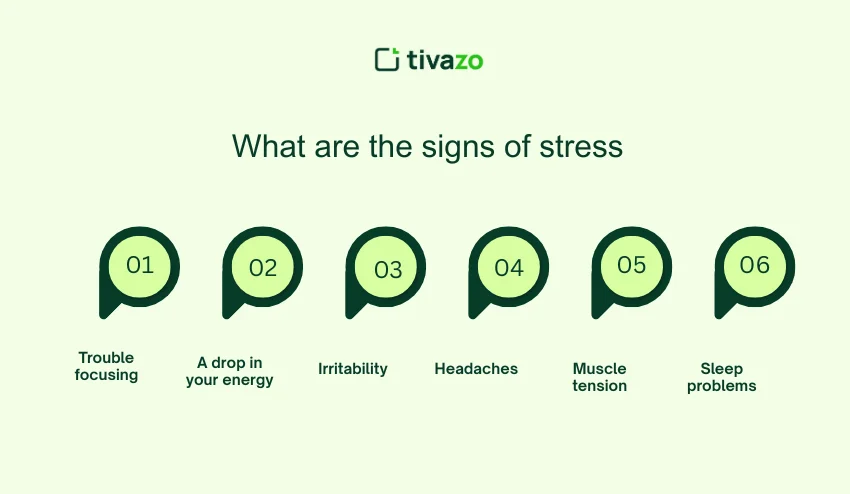
- Trouble focusing
- A drop in your energy
- Irritability
- Headaches
- Muscle tension
- Sleep problems
You may feel tired all the time. These signs can build up. If you notice them, take a break before it becomes too much.
Tools and Apps for Focus and Organization
Modern apps for focus help students stay fresh during exam season. Forest is one example. It helps you stay focused when growing a virtual tree. If you leave the app, the tree dies. It’s a fun way to keep you on task. The app creates a sense of urgency and rewards your attention. The more you focus the higher tree grows.
Another useful platform is EduBirdie. This website creates services to simplify student’s lives. When overwhelmed with tasks and looking for someone to do my essay, the experts on the site offer help. Managers connect me with real authors, I explain the tasks, and I get the paper done on time. It helps take some stress off. EduBirdie provides tons of tools for students at any educational level. It is useful when you need help with homework and free up some time to prepare for exams and in dealing with overwhelm.
Study Strategies & Tools
I’ve tried countless approaches to studies. What have I found? Without a strategy, everything falls apart. So here are some of the best strategies to help you survive exams and apps that are always useful for students.
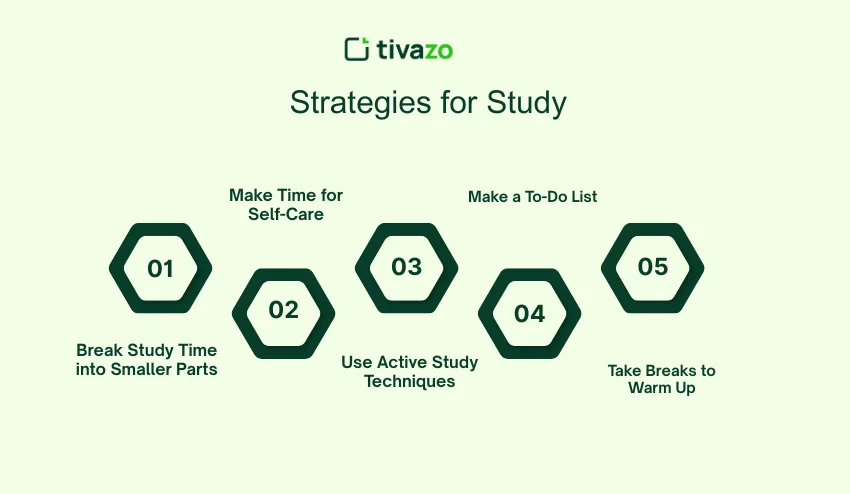
1. Break Study Time into Smaller Parts
It is called the Pomodoro Technique. You study for 45 minutes and rest for 15 minutes. Then you have four study sessions and a long break of 40 minutes or so. This method keeps your brain fresh. During the sessions, you know a break is coming soon. With this feeling, it’s way easier to stay focused, which helps in dealing with overwhelm. This smart tool helps you stay productive all day long. The most famous app for this technique is Pomodoro.
2. Make Time for Self-Care
I’ve learned that when I focus too much on studying, my productivity drops. When I take short breaks to relax it helps me stay energized. Try these apps:
- Headspace has guided meditations that can reduce stress. It also offers short sessions, which are perfect for study breaks.
- Calm has soothing music and breathing exercises. It helps me relax and clear my mind.
Even taking 10 minutes to do some deep breathing or stretching can make you waaay calmer. I also use these apps during breaks to refresh myself. Scheduled relaxation keeps me balanced and helps me avoid burnout.
3. Use Active Study Techniques
They help improve memory and reduce stress. Instead of just reading over notes, test yourself. Active recall is a great method. Review your notes, then try to remember what you’ve learned without looking at them. This strengthens your memory. Review the material at increasing intervals. Like after one day, then three days, and so on. This helps keep the material fresh in your mind.
- Anki uses spaced repetition to help you create flashcards and review them. It automatically schedules reviews based on how well you memorize each card.
- Quizlet also allows you to create flashcards, but it also offers practice tests and games. You can test yourself in different ways, making studying more interactive.
4. Make a To-Do List
The most important in dealing with overwhelm is making a to-do list. When I write everything down, I don’t have to keep it in my head. It helps me focus on one task at a time. Instead of writing “study math,” I break it down into smaller tasks, like “review algebra” or “practice problems.” This makes it easier to know exactly what I need to do.
- Google Keep is great for quick notes. I can create simple lists and check them off as I go. I like how it syncs across all my devices.
- Microsoft To Do allows me to add deadlines, set priorities, and track progress. It’s useful when I need to plan my tasks in more detail.
When I check off tasks, I feel accomplished. The list makes my workload feel more manageable. It also gives me a clear sense of direction, which reduces stress and helps me stay organized.
Take Breaks to Warm Up
Physical activities are as important as mental well-being. So I do some simple workouts.
- Stretchly tracks how long I’ve been studying and suggests stretches or simple activities to do during breaks. It helps me avoid muscle tension from sitting too long.
- Time Out offers similar features, reminding me to take breaks at regular intervals. I use the time to walk around, grab a snack, or do some quick stretches.
Even just 5 or 10 minutes of activities matter. Physical activity is important for your brain too and also important when dealing with overwhelm.
Managing Stress with Mindfulness Techniques
Mindfulness is an excellent way to relieve stress and enhance your ability to focus. By using mindfulness techniques, you can help calm your mind, reduce anxiety, and improve focus. Whether it’s through meditation or basic breathing practices, mindfulness techniques can help you feel calm and think clearly when you are stressed, such as in an exam period.
- Consider deep breathing or meditation during small breaks while studying.
- Consider using an application like Headspace or Calm to do a short guided mindfulness.
- Even five minutes of mindfulness can create a clear mind and reduce tension.
How to Prioritize Tasks Effectively During Exams
Exam time is often overwhelming regarding the number of tasks to complete so dealing with overwhelm is a huge task. If you are prioritizing tasks you are working on, you will ensure you are working on the most critical, difficult tasks first, which will result in maximally productive study time. Chunking your tasks down into smaller pieces, it enables you to focus better and not procrastinate.
- Consider using the Eisenhower Matrix to decide what is urgent vs. important.
- Chunking tasks into smaller pieces will help (for example, rather than just “study biology,” say “study chapter 3”).
- Do the hard tasks early, when you have more energy.
Staying Motivated: Tips to Keep Going When You Feel Overwhelmed
Motivation can be tough to maintain in times of increased stress, but if you pay attention to your behaviors, you can clearly see that minor changes can help you push through. It is helpful to focus on small, responsible goals and to build in breaks in case you are getting close to burnout. When you know you have strategies to support you in residence, you can push through the overwhelming moments and keep things moving forward.
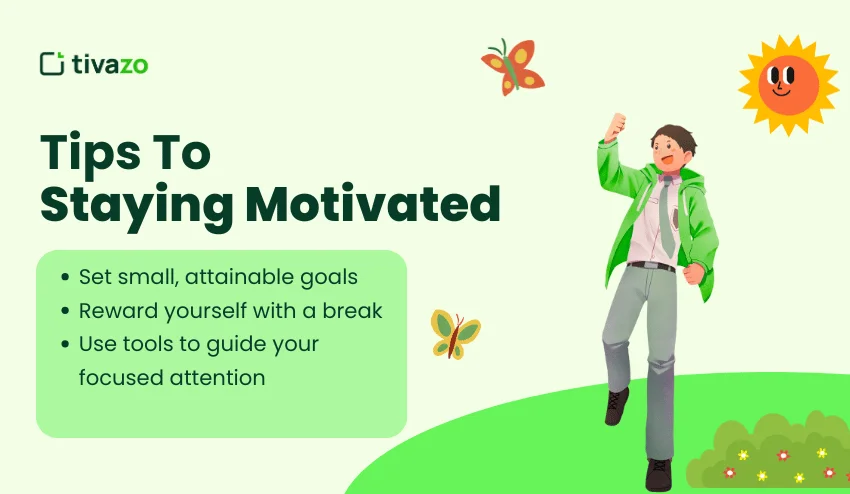
- Set small, attainable goals (e.g., read one chapter).
- Reward yourself with a break or treat after finishing a task.
- Use tools such as Forest or the Pomodoro method to guide your focused attention on studying and dealing with overwhelm.
Creating a Productive Study Environment
A study environmental context can greatly impact your focus and productivity. Anything that is clean or organized reduces distractions and helps bring your attention back inline when focus gets distracted. You may want to reflect back on a space that serves you well in more quiet space is more distracting and less organized.
Also, if you focus on how you are lighting the space and how to be comfortable in that space. Your eyes will get strained on how fast the lights are. If you are in a comfortable chair (this is where overtime physical fatigue will start). If sound creates an issue for you, there are sound-canceling headphones or even calming sounds or music you can listen to help you manage your focus. All of that can assist in creating a productive environment, and studying can be less stressful as well.
Using Time Blocks for Effective Study Sessions
Time blocks are a fantastic approach for structuring and executing your studies as effectively as possible it also helps in dealing with overwhelm. Essentially, time blocking means breaking your day into blocks of time for specific study tasks. This process helps you avoid an activity called multitasking and simply focus on doing one thing at a time, which is what we will try to accomplish at each time block.
Each block of time should be 45–60 minutes in length followed by a break of 10–15 minutes. Using a technique like this keeps your thinking fresher and lowers the risk of burnout. You can adapt both the length of the time block and the break according to the awareness of your focus levels. Time blocks limit procrastination and give you ongoing daily milestones to monitor progress. They’re a useful way to assure you’re always studying toward your exam.
Conclusion
Exams can be difficult to get through. This is a time of maximum emotional and mental stress. Fortunately, many apps , websites make life easier and help dealing with overwhelm. They help you manage your time and learn information better. So keep a positive attitude and trust your preparation. You’ve got this.


